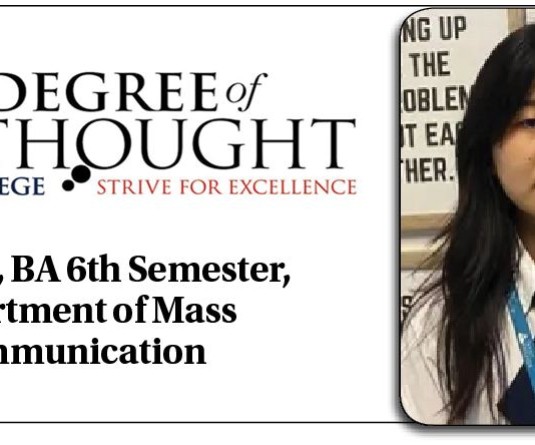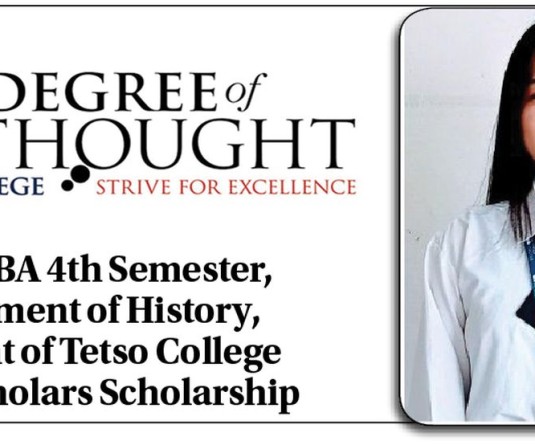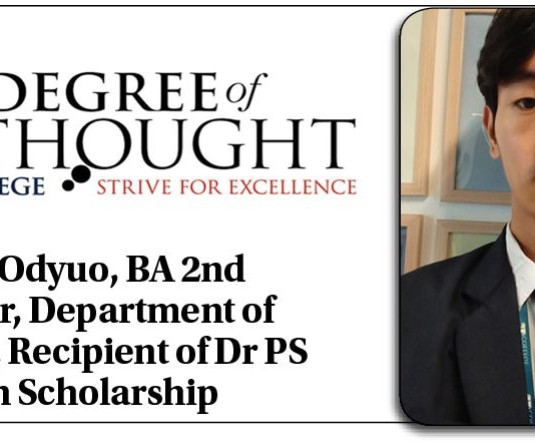
Abeni Yanthan
“I do not want that our loyalty as Indians should be in the slightest way affected by any competitive loyalty whether that loyalty arises out of our religion, out of our culture or out of our language. I want all people to be Indians first, Indians last and nothing else but Indians.” ~ Dr. B.R. Ambedkar
National Unity Day was introduced by the Government of India in 2014. National Unity Day or Rashtriya Ekta Divas is celebrated annually on 31st October - the birth anniversary of Sardar Vallabhbhai Patel. It is celebrated to pay tribute to Sardar Vallabhbhai Patel, who had played a huge role in keeping India united post-independence. Sardar Vallabhbhai Patel played a crucial role in India’s freedom movement and was the person who persuaded the 565 princely states to accede to India. He is also known as the “Iron Man of India” for his great commitment towards national integration.
India is a vast land of culture. Despite all differences it stands tall as one. In order to continue to maintain unity one must educate and make others be aware of the fact that it is of utmost importance that one must accept all differences and unite together as one for the betterment of our common destiny. Man must practice from home itself the culture of unity. If the members of the family do not cooperate, or if the oneness is missing, the family will surely collapse. It will never be a happy family. It is not possible to bring unity or oneness at once but from within we can cultivate and spread the message of unity to society, to country, to state, to nation and to the world. These little baby steps will surely bear fruits which each and every individual will enjoy. Without unity there is no solution. With unity there is peace.
National Unity Day is celebrated in India every year to keep the spirit of brotherhood alive, oneness and most importantly to maintain a sense of unity among us. We shouldn’t solely rely on our leaders or freedom fighters to bring peace and unity but one should realise that when you and I, common men, join hands together as one, we can achieve so much more. By just composing essays, celebrating, taking pictures and just posting it on social media is not enough, we should work hard every day to educate and to spread the message of unity- the state of being one. It is a common sense of brotherhood, oneness of mind, feeling etc.
In today’s world of regionalism and separatism, somewhere the land of unity must lead. It is very necessary for the progress of a nation. For the progress of a nation it is only possible when all the people unite. Bringing people together does not necessarily mean by sacrificing our lives. We can unite ourselves through spreading messages; there is a saying that words are the greatest weapon.
Awake my dear fellow countrymen! It’s time to unite ourselves. Enough of these differences; it is time to unite to achieve peace, justice, betterment for our India. Let’s all take pledge that we won't let our diversities stop us from joining hands together as one. Despite the diversities, we are one, we have the same motherland.
The 'Bharat': A 'Family' that we all perpetually belong to
Keneisedeu Mezhu
“The population of India may be a mixture of Aryans, Dravidians, Mongolians, and Scythians. These came into India from various directions bearing various cultures, norms, and traditional systems. They gradually came down as peaceful neighbours. Through communication, mutual contact, and sexual activity they evolved a standard culture. Ethnically, all people are heterogeneous. It’s the unity of culture that’s the idea of homogeneity.” ~ Dr. B.R. Ambedkar “Caste in India: Their Mechanism, Genesis and Development” before the Anthropological Seminar of Dr A.A. Goldenweiser, the Columbia University, New York, USA, on 9th May 1916
Unity (Latin Unum) means the origin of indivisibility and integrity as something real essential. It can be of a thing, of a soul, of consciousness, or of a personality. It can also be of a notion or of a law.India is known for its notion of 'unity in diversity' which has positive nature and scope. The ground reality as covered by the media is not so pleasant as every day we read about the clashes between different groups of people leading to severe incidents or even deaths. It seems somewhere the values of Justice, Equality, Liberty and most importantly ‘Fraternity’- the Universal Brotherhood- have been forgotten by the people. The word ‘brotherhood’ is the moving spirit in the process of national integration and the word ‘fraternity’ is included in our constitution to promote the feeling of rapport among the citizens of the country. Let us NOT forget that the fraternity was made a reality in India when practicing the caste-system became a criminal offense by the law of the country and maybe that is one of the most important steps that our constitution took towards nation-building and unity.
On a positive note, observing 'national unity day' is less of a celebratory day but more of a reminder or introspection day for Indians in general. It is for every citizen to learn, unlearn, relearn about the notion of unity we claim or hope for. India as a country and a home to people with many differences even among each other needs to emphasize on 'unity of mind'. Also, in 'humility' valuing others above yourselves, we can be united. Finally, Let us not forget that social assimilation was an important component in national unity and the preamble of the constitution contemplated a new social order with ideal justice. For this, the founding fathers of our constitution provided all the citizens of India with economic, social and political liberty of thoughts, faith, expression, and opportunity so as to broaden the foothold of national integration in the country. Let's cherish the ideals of the Constitution. Let us be One: 'The Indian'- firstly and lastly.
Degree of Thought is a weekly community column initiated by Tetso College in partnership with The Morung Express. Degree of Thought will delve into the social, cultural, political and educational issues around us. The views expressed here do not reflect the opinion of the institution. Tetso College is a NAAC Accredited UGC recognised Commerce and Arts College. The editors are Dr Hewasa Lorin, Dr Aniruddha Babar, Nisha Dahiya and Meren. For feedback or comments please email: dot@tetsocollege.org






